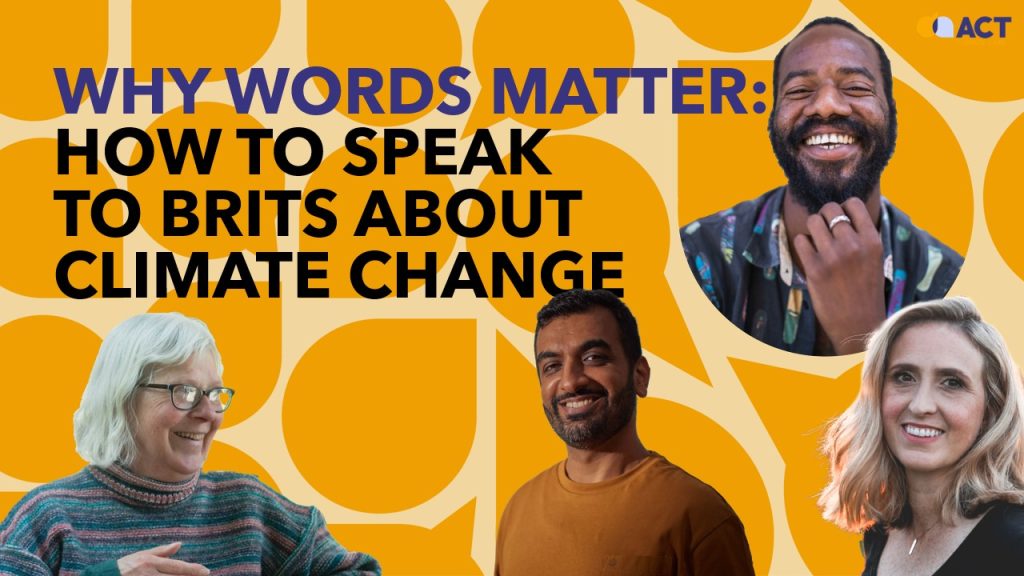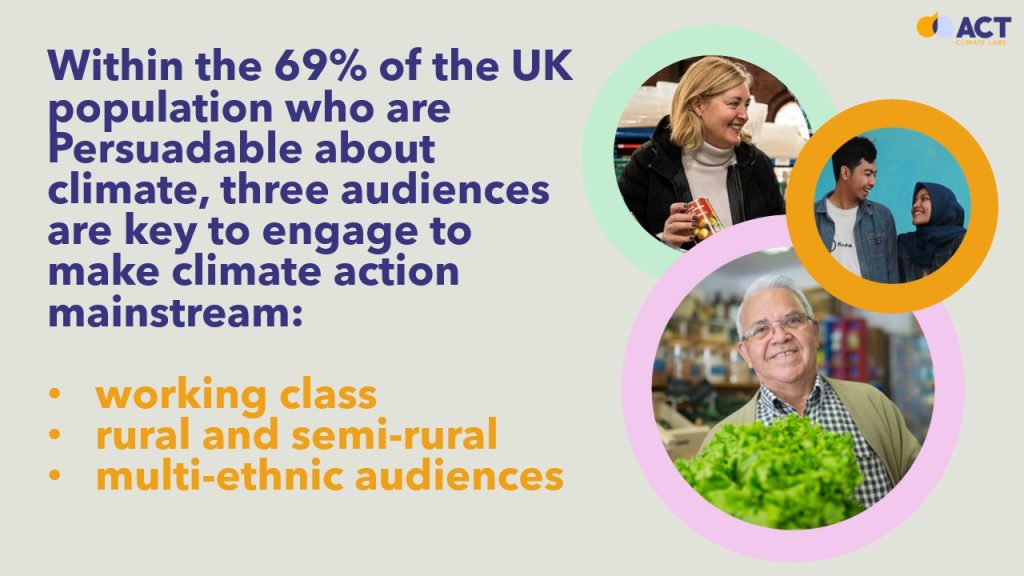Today, advertising and climate experts ACT Climate Labs, in partnership with cultural insights agency Bricolage, shared new research findings into ‘Why words matter: how to speak to Brits about climate change’. The report outlines how the challenges of communicating climate change can be solved by getting the cultural context right.

ACT coined the phrase ‘Persuadables’ in 2022 for a group of people that account for 69% of the UK population and are neither climate deniers nor climate activists. This group of Brits are hugely influential and split into three key audience groups, including those considered to be working-class, multi-ethnic and rural or semi-rural.
The new research outlines how Persuadables are impacted by a cultural divide that discourages them from getting involved in climate action. They see campaigning around climate as ‘others’ and ‘not people like me’. To help make climate change a relevant issue for ‘people like me’, ACT’s research focused on understanding the cultural context of the three key sub-segments.
According to the research, multi-ethnic audiences navigate a heightened set of influences from traditional to contemporary. When speaking to this group ACT’s research advises campaigners to:
- Acknowledge and reflect the mix of traditional and progressive social contexts people inhabit.
- Given the importance of family groups, consider that all your comms should appeal to the collective.
- Understand who holds influence in the audience groups you’re trying to reach, and what’s the most effective way to reach them.
The research notes that ‘tall poppy syndrome’ is prevalent in white working-class audiences with proud origins. When speaking to this group ACTs advises campaigners to:
- Respect the hard-working nature of the community – and don’t divide one community into separate groups.
- Avoid language that refers to taking a stand in a specific community.
- Normalise positive environmental actions through ‘stealth’ communications.

For rural and semi-rural inhabitants, the research uncovered a mistrust of what gets decided in urban contexts. When speaking to this group ACTs advises campaigners to:
- Review your messaging to ensure it’s not just relevant for those living in cities – whether that’s who it’s delivered by, or the means that it’s delivered.
- Take care in communication around issues that touch on provision of services. For example, car vs. bike – and this also extends to manifestations of rural poverty.
Florencia Lujani, report author and Strategy Director at ACT Climate Labs said, “The challenge of communicating climate change right now has nothing to do with getting climate right but getting the cultural context right. We want to supercharge the effectiveness of climate communications and implement new ways of getting ahead of misinformation to neutralise and eradicate the power of the misinformation.
Our research shows that taking a people-first approach, which seeks to understand Persuadables and frame advertising in ways which will reach them, is the best way to make a positive impact. By using multi-channel advertising techniques to reach Persuadables where they are, we can proactively get ahead of misinformation to inoculate Persuadables and strengthen support for climate action.”
The qualitative research engaged with Persuadables across key areas in the UK including Aberdeen in Scotland, Pembrokeshire in Wales and in England the North-East, Midlands and London.
ACT is a collaboration between ethical advertising agency Media Bounty, seasoned climate campaigners, disinformation researchers, measurement experts and journalists. The report findings look to educate and inform its 400 members from across the climate, NGO, cultural and sporting sectors about how best to advertise impactfully to UK audiences about climate change and inoculate them against misinformation.
Concerned that misinformation negatively is shaping Persuadables views and attitudes, resulting in apathy and confusion, the ACT team shares advertising and marketing best practices with proven results from the most successful brands in the world and apply it to climate change to increase the effectiveness of climate communications and make climate action mainstream.
Source: ACT Climate Labs

You must be logged in to post a comment Login